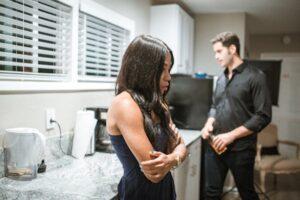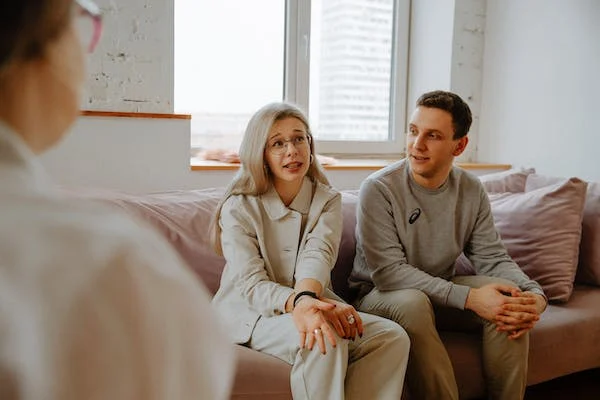This is where you can find hope, growth and healing for your relationship. I can support you to repair and re-establish bonds.
On this page:
What can you bring to couples counselling?

If you’re considering counselling as a couple, please know you’re not alone. It is common for the following to be brought to counselling:
- Lack of communication or feeling misunderstood
- Sex and intimacy issues
- Affairs
- Conflict
- Managing life transitions e.g. aging, changing job, raising children, moving house, illness
What will we do in couples counselling?
Often, the root of any issue is a problem with communication, I will support you to find ways to communicate effectively and assertively. While doing this we may need to accept, appreciate and embrace differences. It may be important to take ownership of mistakes and move towards forgiveness which will allow the relationship to grow and develop.
If you’re used to individual counselling, couples counselling can feel quite different. I will provide structure and use educational techniques to enable you to move forward as a couple. If individual issues arise, I may suggest these are worked on in individual sessions.
What to expect if you contact me for couples counselling
It’s important that both individuals are on board with attending counselling as a couple. I will send you a couple of forms to complete that will enable me to assess your suitability for counselling and whether I would be right for you.
We will then set up our first session at a mutually convenient time. At this first session, we will discuss your needs and desires and the structure for how this could be achieved.
Weekly sessions are suggested when we start work. It’s also important to be prepared to work together between sessions. This may include specific tasks or I may suggest ways you can reflect on what’s been discussed during the sessions.
To set the ball rolling, please contact me here.
What couples counselling is not…
It can helpful to understand how couples counselling will work, but also its limits and what isn’t suitable.
The relationship, as a system, is central to the work, therefore counselling isn’t somewhere to argue about who’s right or wrong and, as a counsellor, I won’t take sides. We work on understanding and validation rather than blame.
It’s important you’re prepared to take responsibility for your part in the difficulties; it’s not someone where we can force the other person to change.
While I can work with situational violence, I cannot work with coercive control or intimate partner terrorism, also known as domestic violence.
If you’re looking for a couples counsellor who can help you identify issues within your relationship and work collaboratively with you, please contact me here.

